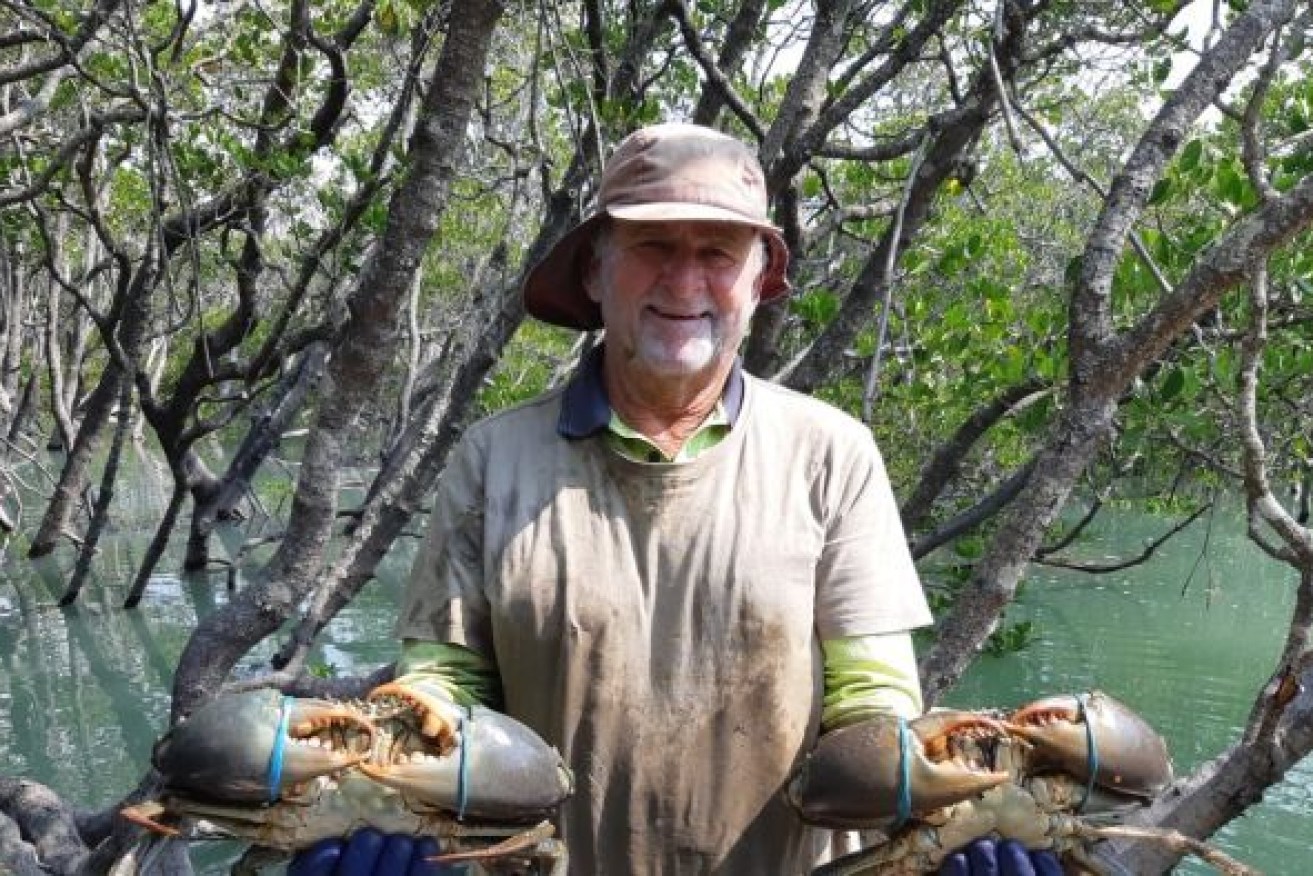Mud crabs become the latest surprise victim of our global pandemic
Commercial crabbers say they may be forced to relinquish their catch at the boat ramp as a huge price drop and freight problems make doing business almost impossible.

Commercial crabber Greg Sichter may be forced to stop fishing if freight options can't be guaranteed. Photo: ABC
Central Queensland fisher Keith Harris put 200 kilograms of mud crabs on a passenger flight out of Rockhampton earlier this week bound for Sydney.
But with prices dropping to $20/kg from $60 only weeks ago, it could be his last shipment for a while.
“We don’t really know where we’re going to go from here,” Harris said.
“I might as well go down to the boat ramp, cut the ties off and let them go.”
Flights cut, crabs grounded
Harris said airline cuts and greatly reduced flight schedules meant there was no guarantee he could get the live crustaceans to market.
But Harris said retailers were struggling too.
“There’s just too much crab for local retailers to handle,” he said.
“The only thing we can think of was to set up a stall in the front yard and put it on social media — but the way things are now, seafood is probably not on the high priority list for the public to go and source.
“We wouldn’t mind if people panic-bought my crabs.”
In the same boat
There are about 1,700 commercial fishing licences in Queensland, and about 474 crab licences.
At Sarina in the Mackay region, Greg Sichter is in the same boat as Mr Harris.
“We have been told there will be a problem with flights — we will probably have to stop altogether,” he said.
Mr Sichter said he does not want to risk any contact with coronavirus by selling direct to the public.
“My daughter is pregnant and my wife and I are 70 years old,” he said.
Easter outlook
At the Sydney Fish Market, trade is continuing as usual — for now.
Chief executive Greg Dyer said auctions on the main floor were going ahead, in line with government regulations.
“We’re reducing the number of people on that floor at any one time,” he said.
He says the week’s trade has reduced, but only by about six per cent, with between 30 and 40 tonnes of seafood still selling each day.
“Restaurant trade has completely disappeared, but making up for that, people need to eat at home and people are stocking, I think, at this point in the cycle,” he said.
But Dyer admitted there were no guarantees things would stay that way.
“Undoubtedly there will be a reduction in demand as this economic impact hits,” he said.
“Some of the bigger valued crustaceans, the lobsters and the mud crabs — they have seen significant price declines already, given the lack of an export market.”
With Easter a fortnight away, Dyer said the industry was working to ensure people’s Good Friday seafood traditions could continue.
“We certainly want to make sure that we are open, working efficiently and doing our very best and making sure these Easter traditions are kept alive,” he said.
Calls for support
Seafood Industry Australia is calling for government assistance to keep the industry afloat.
“We’ve asked all governments across Australia to help us through the next six to 12 months by removing all fees and charges across all of agriculture — not just the seafood industry,” CEO Jane Lovell said.
“We need to secure Australia’s agriculture industry now, so we’re here to continue operating on the other side of this.”
Harris said the Queensland Government needed to do more to support the state’s fishers and primary producers.
He said so far the only measure available to operators like him was a $175 credit for his State Government-issued licence fee.
In a statement, Queensland Agricultural Industry Development and Fisheries Minister Mark Furner said the State Government was continuing to monitor the impacts of the coronavirus and would work with industry to provide support.
“The Government is working to ensure movement of seafood products can continue across borders and is working with companies around freight,” he said.
Furner said other measures available to fishers include a refund of the last two months’ worth of payroll tax for businesses directly affected, a three-month payroll tax holiday, and a further six months payroll tax deferral.
He said a $3.66 million package announced in February also included rural financial counselling services for commercial fishers affected by coronavirus and grants of up to $50,000.
This will support activities such as: market evaluation studies, market visits, training, new processing equipment such as refrigeration or vacuum packaging machines, and boat modifications necessary to meet new market requirements.
– ABC / Megan Hendry












